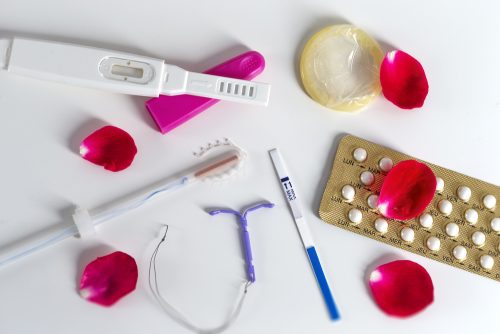As the right moves to make abortion less accessible, a threat to contraceptives boils just beneath the surface. Now is the time to educate yourself about birth control options, and to pursue the most effective contraceptives available to reduce your risk of getting pregnant. So what is the best birth control option? It depends on your needs and overall health, but these five birth control options are by far the most effective.
Permanent Sterilization
Permanent sterilization prevents pregnancy and is more than 99% effective. A vasectomy is the least invasive and safest option. It’s also possible to reverse it. For women who want to permanently prevent pregnancy, a tubal ligation is highly effective. A hysterectomy can also prevent pregnancy, but can cause a number of hormonal swings, so is not necessary unless a person has underlying medical issues.
Intrauterine Device
An intrauterine device (IUD) is almost as effective as permanent sterilization. IUDs work for 5-10 years, and fertility returns as soon as they are removed. You have two options: a non-hormonal copper IUD, and a hormonal IUD. An IUD can also be used as emergency contraception.
Hormonal Contraceptives
Hormonal contraceptives use the hormone progesterone to prevent ovulation. They are 95% effective with typical use, and more than 99% effective with perfect use. Birth control pills are the most popular hormonal contraceptive, but there is also a shot and an implant. These latter two options may work well for people who struggle to remember to take a pill every day.
Combination Methods
By far the most effective method is to combine multiple methods. This ensures that, if one method should fail, there is a backup. Even with imperfect methods such as condoms, the odds of getting pregnant are very low if there’s a second method, because pregnancy requires both methods to fail. Consider using a condom every time, since a condom can reduce the risk of STDs and pregnancy.
Fertility Awareness
Fertility awareness refers to a group of methods that help detect when you’re most likely to be fertile. It includes tracking your period, using ovulation tests, taking your basal body temperature, assessing cervical fluid, and similar strategies. It is not as effective as most other contraceptives because your fertile window can vary a lot. However, fertility awareness used alongside another method is very effective. With this approach, you completely abstain from sex during the times you are most likely to be fertile, then use a highly effective contraceptive for the rest of the month.
This method helps you learn how your body works, which can empower you to detect pregnancy very early. It works well for both getting pregnant and avoiding pregnancy–but only if you use it with other contraceptives. Otherwise, the failure rate is 10-20%.
If your contraception fails and you need an abortion, know that abortion is still legal and you have many good options. Begin your search for a quality abortion clinic here.
More information about effective birth control methods >> Ann Rose’s Ultimate Birth Control.












